Searching for Bobby Fischer
Comprehensive Storyform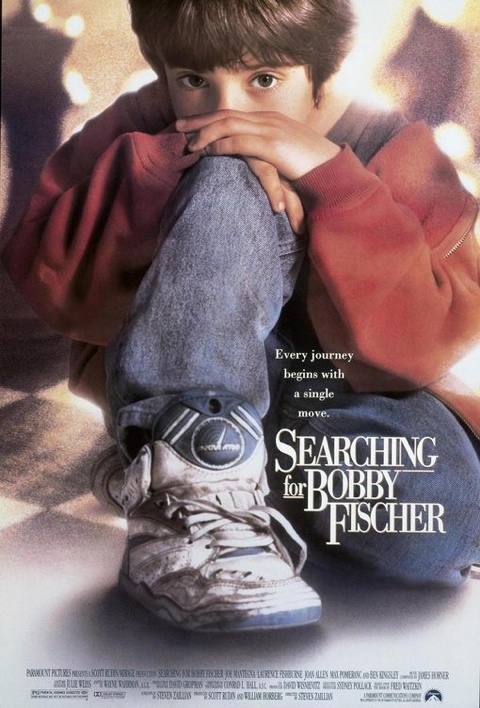
The following analysis reveals a comprehensive look at the Storyform for Searching for Bobby Fischer. Unlike most of the analysis found here—which simply lists the unique individual story appreciations—this in-depth study details the actual encoding for each structural item. This also means it has been incorporated into the Dramatica Story Expert application itself as an easily referenced contextual example.
Story Dynamics
8 of the 12 essential questions
- Steadfast
- Main Character Resolve
Josh sticks to his own way of playing in tournaments. Although Bruce tries to convince Josh to adopt his personal views on winning (and whether or not he should play at all), ultimately Josh resolves his problems by own means, choosing at the end to offer his opponent a way out, before finally winning the game.
- Start
- Main Character Growth
Josh holds out for Bruce and Fred’s unconditional support.
- Do-er
- Main Character Approach
Josh tries to accomplish his purposes by engaging in activities. For example, despite the advice from all corners, he determines his own course.
- Female
- Main Character Mental Sex
As a seven year old child, Josh employs both methods of problem solving, but he tends to favor a more holistic approach. Early in the story, Josh is so reluctant to beat his father at chess, he doesn’t even want to play him. His reluctance demonstrates his desire to hold the relationship together. He doesn’t want to change the status quo—the relationship he has with his dad. He is sensitive to inequities, as demonstrated by his sensitivity to the imbalance between winning and losing, and his sensitivity toward the people around him.
- Decision
- Story Driver
Josh decides to keep the chess piece instead of trading it for a baseball. He reluctantly decides to play and defeat his dad. Dad decides to seek classes for Josh. After initially refusing to accept Josh as a student, Bruce decides to teach Josh. Josh ultimately decides to compete at the championship for himself. He offers the draw to Jonathan.
- Optionlock
- Story Limit
There is no indication whatsoever of how much time passes in the story. The climax is the championship game itself. The nature of the game is a loss of pieces, a narrowing of options, checkmate.
- Success
- Story Outcome
Josh resolves the inequity within himself and goes on to win the championship.
- Good
- Story Judgment
Josh wins on his own terms, keeping his life filled with variety instead of just living for chess. The author’s proof can be seen in the fact that after he beats Jonathan Poe, rather than feeling bad for Jonathan, he says that it was a “good game.”
Overall Story Throughline
""Chess Competitors and Champions""
- Mind
- Overall Story Throughline
Every character has a fixed opinion of what should be done, how the game should be played, whether or not Josh should or will play, and what the consequences will be. Over the course of the story, all of the principle objective characters will have these views challenged.
- Subconscious
- Overall Story Concern
As Jonathan’s teacher says to Bruce before the final match, there is only so much you can teach a child—ultimately they are who they are. Fred is driven by his desire to protect Josh’s ability to play, saying that Josh is better at chess than he has been at anything in his life. As Fred tells Josh’s teacher at school, “He’s better at this than you’ll ever be at anything.” Bruce fears what the drive to play can do to Josh, and has to face his own demons in the process, ultimately playing speed chess for the thrill, and attending the championship. Josh has to balance his desire to win with his basic drive for fairness.
- Hope
- Overall Story Issue
All the characters have hope. They all hope to find or be the next Bobby Fischer. The park players hope to win money. All the parents hope their kids will beat Josh. The kids hope to win. Fred hopes his son becomes the champion that Fred wants him to be. Bruce has to give into his hope for Josh and attend the championship.
- Dream
- Overall Story Counterpoint
- Overall Story Thematic Conflict
Hope vs.Dream - Control
- Overall Story Problem
All the objective characters seem to be concerned with control, or who’s in control. Fred, Bruce, and Vinnie want to control Josh’s method of play. Bruce further wants Josh to learn control in his play. Vinnie wants Josh to be less controlled. Bonnie fears there is too much control placed on Josh in general. Josh’s teacher wants to exercise some control over his tournament playing. The other chess parents try to control their kids’ play as well as the kids’ reactions to losing.
- Uncontrolled
- Overall Story Solution
After learning the two principle approaches to playing chess, Josh has to let go of both ways and listen to his own voice to win. Jonathan Poe has been taught to play one way—to win at all costs. He can’t let go of the control drilled into him by his teacher and is therefore defeated. Poe’s teacher tells Bruce that you can only teach a child so much, that ultimately he will be who he is.
- Feeling
- Overall Story Symptom
Josh has to get back to playing the game with his intuition—his feelings—like Vinnie shows him. He has to deal with the feelings of fear that he will lose, and his fear of how losing will feel. Bonnie’s feelings erupt when she throws Bruce out of the house. Bruce worries about how Josh will feel if he loses the championship.
- Logic
- Overall Story Response
Throughout the story, there appear to be logical steps to take: get Josh a teacher; play chess his way; play in tournaments; play Vinnie’s way. At the climax, Bruce and Vinnie stand in front of a TV monitor watching Josh play, trying to will him to follow their particular logic.
- Denial
- Overall Story Catalyst
Fred refuses to let go of Josh’s movement toward being a champion. Bruce can’t let go of his fear for Josh if he loses. Josh refuses to let go of his own quest when he realizes he has to do it for himself.
- Responsibility
- Overall Story Inhibitor
Fred believes that as a father, he knows best for his son, and makes choices based on this belief. He yells at Josh for losing because he believes he is right. Bruce tries to convince Josh that he knows the way Josh MUST play. Vinnie tells Josh much the same thing.
- Preconscious
- Overall Story Benchmark
As the story progresses, Fred and Bruce react more and more impulsively, revealing that they are driven more by their own histories than with Josh’s personal benefit. (i.e. Fred’s conversation with the teacher, and Bruce’s showing Josh the xeroxed certificates).
- Overall Story Throughline Synopsis
Josh Waitzkin, a seven year old boy, is a chess prodigy. Perhaps as good as Bobby Fischer. Maybe better. No one knows where this talent came from, but everyone has opinions on what to do with it. His father, Fred, realizes that Josh is better at chess than Fred will ever be at anything and hires Bruce Pandolfini, a former Chess Master, to teach his son what he knows. Josh’s mother, Bonnie, is concerned that in pushing Josh, they risk taking from him the very thing that makes him who he is: his compassion.
Additional Overall Story Information →
Main Character Throughline
Josh — Chess Prodigy
- Physics
- Main Character Throughline
The activity of playing chess is at the center of where problems occur for Josh.
- Obtaining
- Main Character Concern
The area of Josh’s concern deals with the natural inequity that lies between winning and losing (in order to win, you must take something from your opponent).
- Approach
- Main Character Issue
By nature, Josh is a caring, loving kid. It is because of his character that he notices the imbalance between winning and losing, and is constantly looking for the right approach to resolving this dilemma (i.e. throwing games, choosing not to play, choosing to play, playing to win, offering a draw).
- Attitude
- Main Character Counterpoint
- Main Character Thematic Conflict
Approach vs.Attitude - Consider
- Main Character Problem
From the moment Josh plays his first game with his dad, he weighs the pros and cons of winning. He doesn’t want to hurt his father’s feeling by beating him. The inequity between winning and losing is an issue that Josh is continually pondering.
- Reconsider
- Main Character Solution
Once Josh further deliberates his feelings about himself winning, he is able to resolve his personal drive.
- Feeling
- Main Character Symptom
Although Josh seems to enjoy playing for its own sake, he is caught up in the feelings engendered in the process of winning and losing. He throws his first game with his father for fear of hurting his feelings. He clearly feels for the opposing baseball team when they lose.
- Logic
- Main Character Response
Josh’s remedy for the feelings engendered by watching other people lose, is very simple and very logical. He lets them win (i.e. his father in the beginning, and the scared kid in the tournament). The logical direction for Josh’s focus on feelings is to offer a draw to Jonathan Poe.
- Attitude
- Main Character Unique Ability
Josh is by nature a loving, caring kid. He genuinely cares about people, as evidenced by his reluctance to hurt his dad’s feelings by beating him in chess; his concern for Vinnie’s homeless status; his empathy for the losing Little League team. His straightforward and generous attitude is what makes it possible for him to resolve the story’s difficulties.
- Choice
- Main Character Critical Flaw
As exemplified by Josh’s love of speed chess, he is prone to making quick decisions. Bruce tries to get him to consider his moves before making them, and he fortunately has a bit of impact, because quick decisions in the final game almost cost him the tournament.
- Doing
- Main Character Benchmark
Josh continues to play chess throughout the story. How he feels about the outcome is his personal barometer.
- Main Character Description
Josh Waitzkin is a perfectly normal seven year old, except for the fact that he may be the greatest chess player in history. Josh enjoys playing games, but is keenly aware that in any game, if there is a winner, there must also be a loser. This is a fact that Josh is uncomfortable with, but he ultimately finds a way of adjusting to this inequity. Played by Max Pomeranc in the film.
- Main Character Throughline Synopsis
Josh, having discovered chess, would be more than content with just playing the game in the park with his new friends. But when his father enters him into high stakes tournaments, he comes face to face with the dark side of winning: someone always loses. Josh tries to deal with this inequity by throwing games, which he realizes is not a solution. Ultimately, the only solution for Josh is to find a way to “want” to win.
Additional Main Character Information →
Influence Character Throughline
Bruce — Chess Teacher
- Psychology
- Influence Character Throughline
Bruce struggles with the mentality of being a has-been chess champion, and uses manipulative techniques to ensure that Josh plays chess the way Bobby Fischer would.
- Becoming
- Influence Character Concern
Bruce is sure that Josh is the next Bobby Fischer and does what he can to ensure that he becomes the chess master. In a sense, Bruce can be seen as trying to change his own nature, vicariously, by changing Josh.
- Rationalization
- Influence Character Issue
Bruce has apparent reasons for not wanting Josh to participate in speed chess and competitions, claiming they will harm Josh in the long run, but his real reasons concern his own fears, memories, and inadequacies.
- Obligation
- Influence Character Counterpoint
- Influence Character Thematic Conflict
Rationalization vs.Obligation - Control
- Influence Character Problem
Bruce is so convinced the only way to be a champion is Bobby Fischer’s way, that he tries to wedge Josh into that mold, not allowing him to find his own methods for success.
- Uncontrolled
- Influence Character Solution
Bruce is trying to succeed vicariously through Josh, but it is only by relinquishing control over Josh that the boy is able to put together all that he has learned and embrace the idea that winning is good. When this occurs, Bruce’s personal drive is satisfied.
- Temptation
- Influence Character Symptom
Bruce constantly drills into Josh that speed chess and going for the quick win will ruin Josh’s thinking, and his future in serious chess competition. This has the effect of making Josh think even more about his personal problem with the inequity of winning vs. losing.
- Conscience
- Influence Character Response
Bruce tries to get Josh to restrain himself and not go for the quick win. Not to “take his queen out too soon.” He tries to get him to stop relying on his instincts, no matter how right they may seem, in order to get Josh to fully think about what he does before he does it.
- Obligation
- Influence Character Unique Ability
Bruce makes an agreement with Josh, whereby Josh agrees to do what Bruce tells him, in exchange for “master points” which he is told will lead to his earning a Chess Master’s certificate.
- Dream
- Influence Character Critical Flaw
Bruce’s dream had always been to become a Grand Master, but it was not to be. When he meets Josh, he sees an opportunity to transfer that dream to him. To that end, he virtually insists that Josh “become” Fischer. But as Josh points out, he’s not Bobby Fischer. And unless he’s allowed to develop in his own right, he will be doomed, like Bruce, to be a poor imitation of someone else.
- Being
- Influence Character Benchmark
Bruce condemns speed chess as not being real chess. But when Josh’s mother throws Bruce out of her house, he is seen playing speed chess on a back street in Times Square.
- Influence Character Description
Bruce Pandolfini, in Fred’s words “was some kind of a Chess Master, or something.” He has lived his life knowing that he will never be the chess artist that Bobby Fischer was, but sees that possibility in Josh. Played by Ben Kingsley in the film.
- Influence Character Throughline Synopsis
When Fred Waitzkin first approaches Bruce Pandolfini to get him to teach chess to his son, Bruce is a bitter, disillusioned, chess has-been. Having lived the live of a competitive chess player, he knows what Josh could be in for. But he has to take the job because he is absolutely driven. He tries to make Josh the new Bobby Fischer, but risks turning Josh off of chess forever. Ultimately, he realizes that Josh must be allowed to play his own way and utilize his own talents.
More Influence Character Information →
Relationship Story Throughline
""The Making of a Chess Master""
- Universe
- Relationship Story Throughline
Bruce and Josh have a student-teacher relationship, with an implied contract between them, based on Bruce’s Master Class point system.
- Future
- Relationship Story Concern
Bruce sees Josh’s future in the guise of Asa, the disillusioned player who is completely obsessed with the game. He is concerned with what the impact on Josh would be if he loses. Bruce wants Josh to become the next Bobby Fischer.
- Delay
- Relationship Story Issue
Bruce encourages Josh and Fred to delay the tournament play. He tries to teach Josh to delay his instinctive moves in the game—delay until he has thought through every move. Josh insists even to the end on his own choice, offering a draw when he sees that he has clearly won.
- Choice
- Relationship Story Counterpoint
- Relationship Story Thematic Conflict
Delay vs.Choice - Conscience
- Relationship Story Problem
Bruce wants Josh to think deeply into every move in the game, foregoing the flashy move—the immediate benefit. Josh likes to play more like the park players. Bruce wants Josh to wait to enter into tournament play.
- Temptation
- Relationship Story Solution
Bruce gives in to Josh’s need for the certificate (or rather the approval that it represents), by giving Josh a framed certificate that affirms that Josh is, “in the eyes of his teacher, a Grand Master.”
- Feeling
- Relationship Story Symptom
Bruce tries to convince Josh that in order to be a chess master, he must have contempt for his opponents. He must hate them.
- Logic
- Relationship Story Response
Bruce says over and over: don’t bring your queen out. He makes Josh play in his mind while staring at an empty board. When Josh wants to get his certificate, Bruce forgets he’s dealing with a child and tells him it’s unimportant—concentrate on the game.
- Preconception
- Relationship Story Catalyst
Bruce’s preconception that Josh is the next Bobby Fischer accelerates the subjective story forward.
- Morality
- Relationship Story Inhibitor
Bruce, saying that tournament play will be bad for Josh, refuses to accompany him on any of the trips, thus separating them whenever Josh is away. Josh refuses to hate his opponents, as Bruce insists. This leads to Bruce to undermine the relationship, showing Josh that the certificates are meaningless. Bonnie, thinking of her son’s welfare, fires Bruce, temporarily stopping the relationship between Bruce and Josh (as well as their growth).
- Progress
- Relationship Story Benchmark
Bruce introduces the reward system to gauge Josh’s progress early on. Bruce upsets Josh by changing the rules and taking points away. He ultimately gives Josh the real certificate just before the final match. Josh’s progress as a player is an important way growth is measured in this relationship.
- Relationship Story Throughline Synopsis
When Bruce is hired to teach Josh chess, he does so because he wants back “what Bobby Fischer took with him when he disappeared.” Over the course of their relationship, Bruce tries to force Josh into the mold of Bobby Fischer, playing like him and thinking like him. Ultimately, Josh is who he is, which Bruce comes to realize is far more important than him imitating the elusive champion.
Additional Relationship Story Information →
Additional Story Points
Key Structural Appreciations
- Subconscious
- Overall Story Goal
As the title suggests, there is great desire to find the next Bobby Fischer. Vinnie and Bruce offer Josh two alternative ways to play chess that reflect what drives each of them. Bruce explains the result of the desires and drives of the players who become obsessed with the game. Fred is driven to push his son to develop his talent. Bonnie, aware that all of these views are forced onto Josh without regard for what actually drives him, is driven herself to protect her son.
- Future
- Overall Story Consequence
Bruce shows Fred what Josh’s future could be like if he doesn’t have what it takes—as demonstrated by Asa, the club player who mutters to himself, never able to let the game go.
- Becoming
- Overall Story Cost
An illustration of “becoming” as a cost incurred on the way to the goal is delineated in the character of Jonathan Poe. In his (and his teacher’s) drive to be the next Bobby Fischer, he has transformed from a child to a chess playing machine.
- Obtaining
- Overall Story Dividend
Josh obtains trophies and victories. He obtains his father’s attention. Bruce obtains the courage to play chess for the joy of it, and to attend the championship. Vinnie and Josh achieve a true friendship, as do Morgan and Josh.
- Preconscious
- Overall Story Requirements
When Bruce is fired, Josh goes back to playing at the park with Vinnie, where he learns to “play the man, not the board.” In other words, he is told to trust his instincts.
- Progress
- Overall Story Prerequisites
Josh, Bruce, Fred, Poe’s teacher, the adult club players, and the street players are constantly concerned with how things are going. Bruce even starts the point system to measure Josh’s performance. Josh takes this very seriously, insisting on getting points, and knowing how many points are necessary for his certificate. Fred is motivated to measure Josh’s performance to the point that he dresses down Josh’s school teacher when she wants to discuss his progress in school. The sequence before the final game with Jonathan, beautifully shows the progress that Josh makes, from table to table, getting closer and closer to Jonathan, his only real competition.
- Being
- Overall Story Preconditions
Josh must adopt the lifestyle of a chess player. He has to change schools, attend tournaments, move from hotel to hotel.
- Doing
- Overall Story Forewarnings
Asa exemplifies the forewarning of “doing.” He is the adult child of a well-to-do family. He is college educated. He is obsessed with chess. The chess players in the park further illustrate the forewarning of engaging in physical activities. They spend their days playing for drug money.
Plot Progression
Dynamic Act Appreciations
Overall Story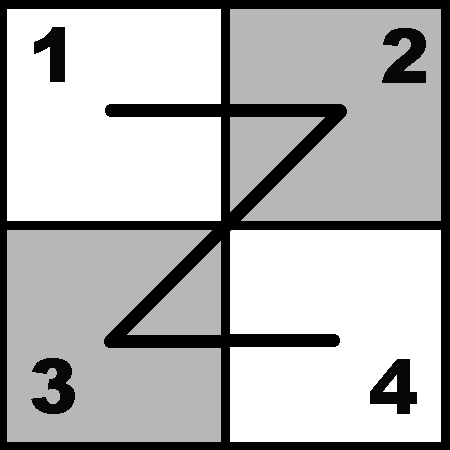
- Memory
- Overall Story Signpost 1
The opening montage portrays memories of Bobby Fischer, depicted in black and white footage. The opening scenes serve to elicit childhood memories. Fred (Josh’s Father) watches the hide and seek game with a sense of nostalgia and tries to convey his own childhood memories to Josh (e.g., oiling his first baseball glove). Vinnie asks Josh his name so that he can remember when the boy used to play in the park like Bobby Fischer.
- Preconscious
- Overall Story Signpost 2
No one seems to know exactly how or when Josh learned to play chess. It appears to be entirely instinctive. Seemingly, from the moment he watches the park players, Josh understands the game. And as soon as Josh’s talents are recognized, everyone jumps at the chance to start developing the skills necessary to turn him into the chess master that he appears to be.
- Subconscious
- Overall Story Signpost 3
The true feelings which drive the objective characters are brought to the surface. Bruce realizes he is forcing Josh to be what he himself could never be; Fred becomes aware that he is pushing Josh to be the success he never was; Josh’s mother and teacher are the channels for that awareness; Vinnie tells Josh to focus more on the person driving the game, than the game itself.
- Conscious
- Overall Story Signpost 4
Most of the characters have consciously discovered what was driving them, and are aware of their deeper reasons for pushing Josh and the others, and Bruce and Fred both release their respective grips. Even Josh consciously decides that he has to play the game, whether or not he is being pressed by his father or Bruce or Vinnie.
Main Character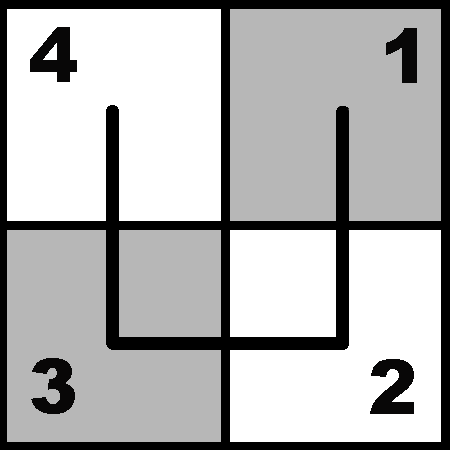
- Doing
- Main Character Signpost 1
When Josh is first introduced he is playing games. First hide and seek, then chess, then Mousetrap (with his sister while playing chess with his dad). Just playing for its own sake.
- Learning
- Main Character Signpost 2
Josh starts his formal chess lessons, beginning the process of learning the game.
- Obtaining
- Main Character Signpost 3
Josh’s concern of winning and losing comes to the forefront as Jonathan Poe enters into the picture and Josh is faced with the possibility of not being able to win.
- Understanding
- Main Character Signpost 4
Throughout the final game, Josh is able to put together all that he has been taught, and face his fear of losing, winning, and Jonathan Poe.
Influence Character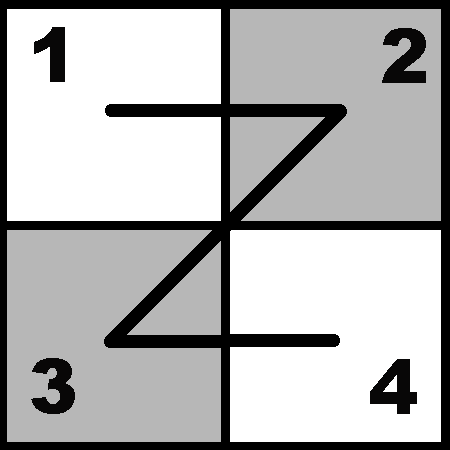
- Conceptualizing
- Influence Character Signpost 1
Bruce needs to see Josh in action before committing to teaching him. Even then, Bruce does what he can to show Fred exactly what will happen to Josh if he pursues the life of chess tournaments.
- Being
- Influence Character Signpost 2
In order to gain Josh’s trust, Bruce spends several sessions just being with Josh, seeing how he thinks, lives, and plays. Not playing (or even discussing) chess yet, but rather convincing Josh that he is a friend. He informs Bonnie and Fred that his job will be harder if Josh continues to play chess in the park. “Then your job is harder” replies Bonnie.
- Becoming
- Influence Character Signpost 3
Bruce is concerned with developing Josh’s natural instincts, and trying to get him to “become Bobby Fischer.” But the more he tries, the more he finds himself faced with having to give up his own desires and relinquish control.
- Conceiving
- Influence Character Signpost 4
Bonnie fires Bruce, forcing him into a self-imposed exile, where he begins to rethink his approach to Josh and his own life, ultimately realizing that the answer is to trust Josh to make the right choices.
Relationship Story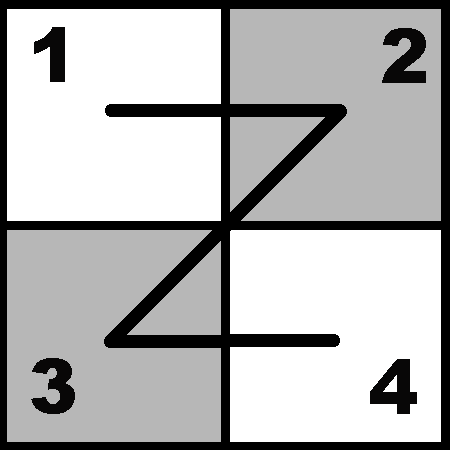
- Past
- Relationship Story Signpost 1
Bruce says the reason he agreed to teach Josh chess is: “I want back what Bobby Fischer took with him when he disappeared.” Their first meetings together are simply to establish what Josh already knows.
- Progress
- Relationship Story Signpost 2
Bruce establishes a system wherein Josh will earn “Master Points” in exchange for good performance.
- Future
- Relationship Story Signpost 3
Bruce tries to push Josh into thinking about the future and the consequences of what he does. “To put him in the position of winning and not prepare him is wrong.” He pushes too far, and gets fired as Josh’s teacher.
- Present
- Relationship Story Signpost 4
Bruce tells Josh that he has his approval, that in his eyes, Josh is already a Chess Grand Master. In doing so, Bruce removes his own grip on the past and his insistence that Josh focus on his future. Thus, Josh is able to completely focus on the present at the final game and win both an objective and personal victory.
Plot Progression Visualizations
Dynamic Act Schematics
OS:  MC:
MC:  IC:
IC:  RS:
RS: 




